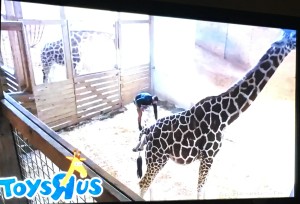
We have hooves! A quick shot of my tv as we were live-streaming the magnificent birth!
This past weekend, thousands and thousands of people watched April The Giraffe give birth at the Animal Adventure Park in New York. After months of watching and waiting, many of us woke up on a beautiful Saturday morning with the news that active labor was confirmed and that hooves were visible. In our household, of course, we had to live stream it up on the big screen; first when the live cam went up in Feb, and then as soon as we knew it was the big day- for real this time.
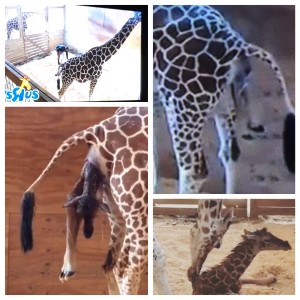
Why were people so enamored with this majestic creature and her ability to birth her baby into this world you ask? Maybe it was the uniqueness of the event or the ability to watch it live that drew us all in, similar to how many people watched a bald eagle nest earlier this year for the signs of a new baby bird emerging from its egg. Or maybe it’s just the miracle of birth and the ability to watch it unfold in a way that we as a society don’t get to see very often.
But, what I want for people to take in was the very beautiful, very important lessons April The Giraffe demonstrated about birth.
As a Lamaze Certified Childbirth Educator, I am versed in what we call the 6 Healthy Birth Practices. Basically, Lamaze has collected the research-based data and put out 6 recommendations for families to plan for when giving birth to promote the healthiest, most evidence-based birth possible. These birth practices include:
- Let Labor Begin On Its Own
- Walk, move around and change positions throughout labor
- Bring a loved one, friend or doula for continuous support
- Avoid Interventions That Are Not Medically Necessary
- Avoid giving birth on your back and follow your body’s urges to push
- Keep mother and baby together – It’s best for mother, baby, and breastfeeding
As I watched April birth the lanky giraffe into her stall, I was struck by how many of the 6 birth practices are just mammalian nature. The parallels with animal birth and human birth are a plenty, let’s take a deeper look.
So, for many folks, waiting for April to birth was hard…and LLLLOOOOONNNNNGGGGG. If you were anything like me, you watched a lot on day 1 and thought, “Oh, this is it.” And then day two came and you thought “Oh thank goodness we got through the night and I didn’t miss it.” And then day 3 came and you thought “TODAY! Is the day.” And then, it was weeks which turned into months of waiting. Your patience was tested to the max, and some days you may have given up hope and wondering if something was wrong or if the veterinarians should intervene in some way. But they didn’t. They waited patiently for labor to begin on its own, and they encouraged us to do the same.
The end of pregnancy is hard for many women. Sometimes it feels like you’ll be pregnant forever and ever and ever. But, there are so many great physical and hormonal reasons(barring no medical complications) to wait for your sweet baby to say- “Hey mom, it’s time, let’s go!” The wait is worth it. Check out this article from the March of Dimes about induction of labor and their campaign to wait until at least 39 weeks gestation.
Did you notice how April The Giraffe walked and moved in the days preceding her labor and birth? I even noticed some swaying back and forth. At one point my youngest child (teen #2) walked into the room and exclaimed, “I know what she needs to do, she needs to SQUAT.” It was utterly amazing to watch this creature do exactly what she needed to do throughout the process to meet her very instinctual needs. From walking to swaying to resting and sleeping, she was a fine example of patiently waiting and working with her body.
If you’ve been a part of my childbirth classes or 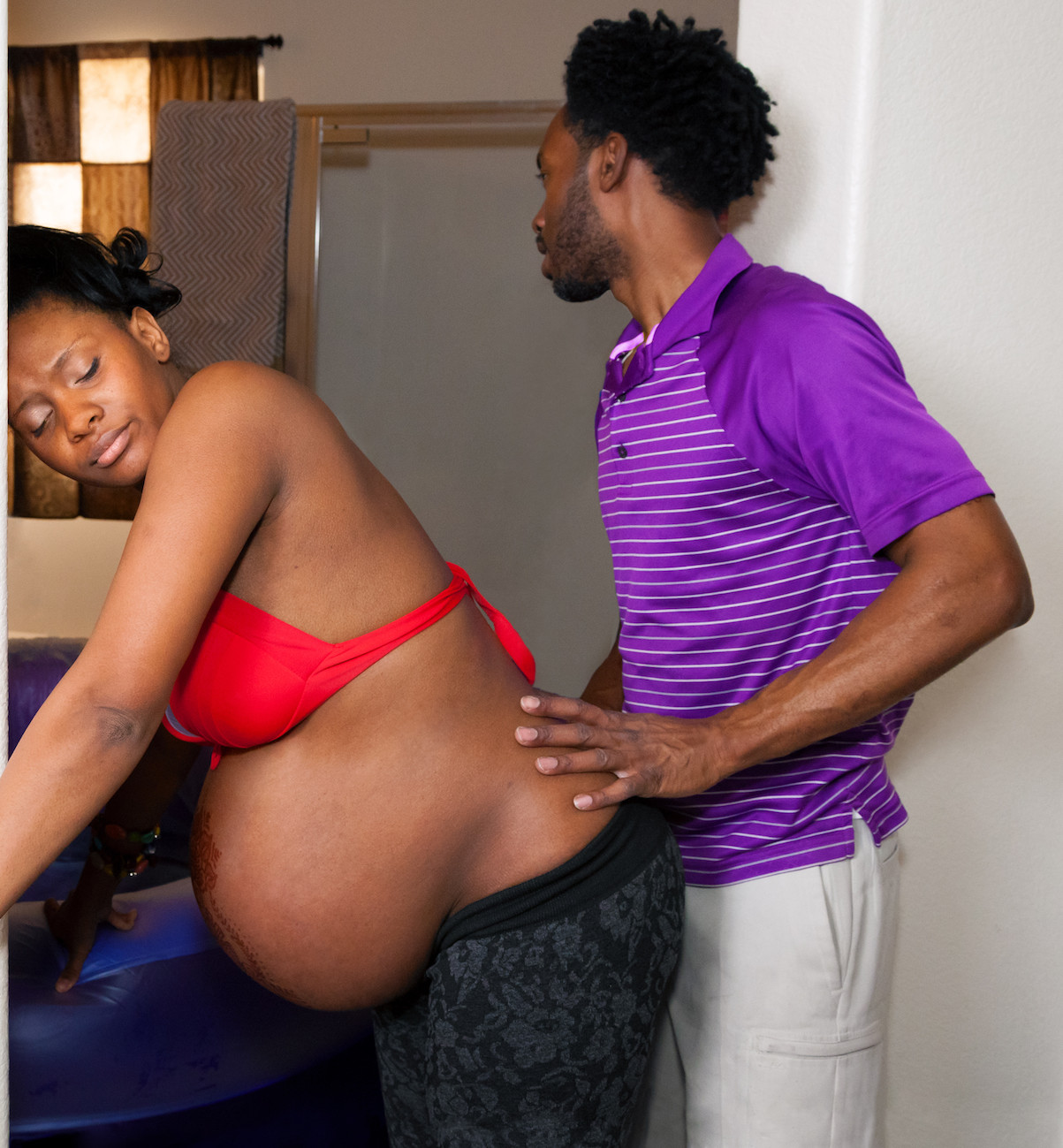 doula trainings, you know that the cornerstone to much of what we teach about labor progression and comfort is movement and position changes for labor. I like to say, the more you move, the less you hurt, the quicker the baby comes out. The process of labor is so smart that the body intuitively signals the mother to move in ways that are beneficial to both labor progress and for pain management. It’s such an amazement to me that some moms often begin swaying side to side instinctually in pregnancy, and then in labor, and then continue to sway to soothe a newborn.
doula trainings, you know that the cornerstone to much of what we teach about labor progression and comfort is movement and position changes for labor. I like to say, the more you move, the less you hurt, the quicker the baby comes out. The process of labor is so smart that the body intuitively signals the mother to move in ways that are beneficial to both labor progress and for pain management. It’s such an amazement to me that some moms often begin swaying side to side instinctually in pregnancy, and then in labor, and then continue to sway to soothe a newborn.
Have you ever seen a woman in the checkout line at the grocery store swaying at the sound of a baby crying nearby? Yup, it’s instinctual.
And the design of that instinct is paramount to helping the baby move deeper into the pelvis while also providing comfort for the mother. Rhythmic movement is a coping strategy, and movement lessens pain!
Okay, so this one is near and dear to my heart (for obvious reasons). How special sweet was it for us to watch April The Giraffe supported through the process by her companion, Oliver. Did you notice her mate paying much attention to what was happening with her throughout the experience? He was kept close by because giraffes are herd animals and the park experts knew that she needed support through the process. Because Oliver is a bit of a rambunctious boy, he couldn’t be IN with April most of the time, but he watched in the next stall and at times they would nuzzle or eat from the shared feeder. During the birth- he sure was pacing, just like a lot of dads out there.
In addition to her fellow giraffe, April had the park attendants on watch 24/7 for over two months, as well as regular check-ups from the park veterinarian. Her lead keeper, Alyssa would show her some love and support and you could tell that the two had a bond. April was loved and supported throughout the process. In some ways, Alyssa, and all of the park attendants were her doulas.
Support in labor is important. Really important.
Research shows that when women are attended by a professional labor support person such as a doula they experience:
- 31% decrease in the use of Pitocin
- 28% decrease in the risk of C-section
- 12% increase in the likelihood of a spontaneous vaginal birth
- 9% decrease in the use of any medications for pain relief
- 14% decrease in the risk of newborns being admitted to a special care nursery
- 34% decrease in the risk of being dissatisfied with the birth experience
The 2012 Cochrane review by Hodnett et al. concluded that “continuous support during labour has clinically meaningful benefits for women and infants and no known harm. All women should have support throughout labour and birth.”
In 2014 and 2017, ACOG (The American College of Obstetricians and Gynecologist) endorsed doula support stating “evidence suggests that, in addition to regular nursing care, continuous one-to-one emotional support is associated with improved outcomes for women in labor.”
The bottom line- emotional support in labor matters, and is significantly meaningful to maternal physical, Emotional, and mental health.
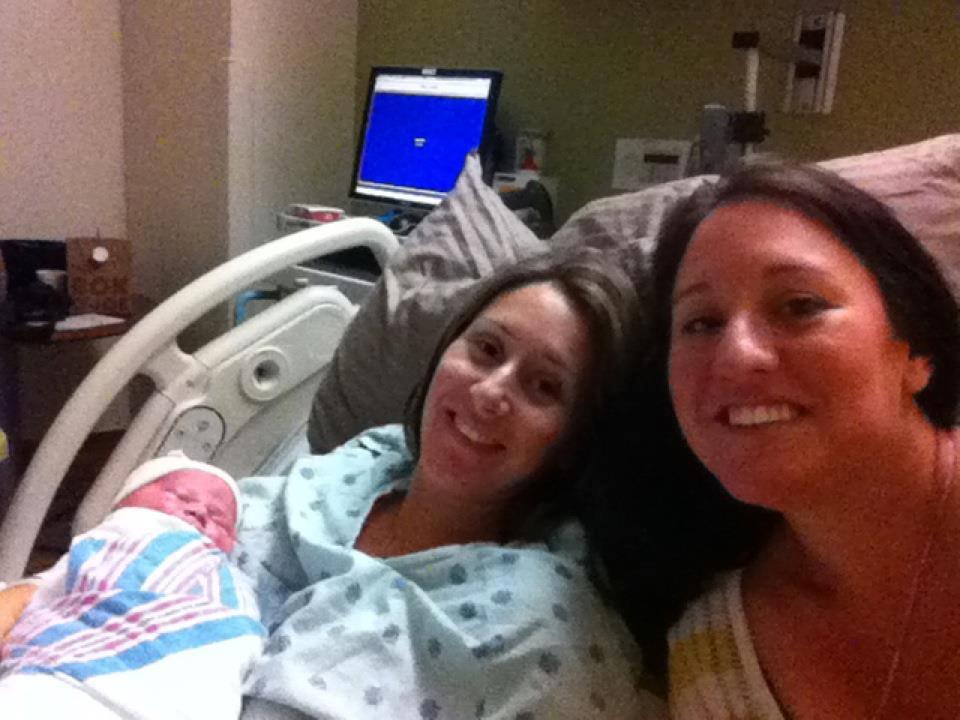
Melissa with her own sister, after the birth of her third child.
The founders of DONA International knew this all the way back in 1992 when they founded DONA International (then Doulas Of North America), the education and certification organization for training up the next generation of doulas. The basic tenants of the importance of labor support are now finally starting to get the recognition that they deserve!
I got a really big chuckle reading many comments across the web about the speed of April’s “labor.” It seems that we’ve become a society of intervening in the natural process, sometimes just because it’s hard to wait. The very smart professionals at the Animal Adventure Park were quick to keep us grounded in the natural process that was unfolding. As a matter of fact, they said that they couldn’t actually confirm labor until they saw the hooves! They held fast and waited, knowing that when the time was right, we’d know. And, boy did we know. It was such a joy to watch the facebook live video from park owner Jordon Patch as he was racing to the barn as it was baby day! Wasn’t he just like any excited dad!! If you haven’t seen it yet- take a quick look.
Okay, so are all interventions bad? In a word NO! Interventions in labor can be life-saving for both mom and baby.
Let’s say that out loud again. Interventions in birth can be life-saving.
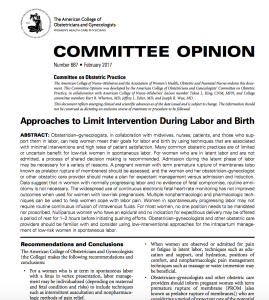 With that said, we know that in the United States, we have a tendency to overuse…well just about everything. Recently, ACOG published an opinion piece with new recommendations for OB/GYNS and the public titled Approaches to Limit Intervention During Labor and Birth. The piece listed many ways for practitioners to promote healthy birth and reduce interventions in healthy pregnancies including awaiting hospital admission, reducing amniotomy(artificially breaking the water), providing continuous one to one labor support, encouraging non-pharmacological pain management support and so much more. The recommendation piece which was endorsed by ACNM and AWHONN was a huge step forward in promoting healthy, safe, birth for low-risk childbirth.
With that said, we know that in the United States, we have a tendency to overuse…well just about everything. Recently, ACOG published an opinion piece with new recommendations for OB/GYNS and the public titled Approaches to Limit Intervention During Labor and Birth. The piece listed many ways for practitioners to promote healthy birth and reduce interventions in healthy pregnancies including awaiting hospital admission, reducing amniotomy(artificially breaking the water), providing continuous one to one labor support, encouraging non-pharmacological pain management support and so much more. The recommendation piece which was endorsed by ACNM and AWHONN was a huge step forward in promoting healthy, safe, birth for low-risk childbirth.
Additionally, this Huffington Post piece from March 2017, highlighted the difference an hour can make in our overall cesarean rate- and it’s substantial. Basically- more time, more patience, and only medical management when medically necessary is healthier for moms and babies.
Isn’t it great to see the data and evidence support what many people feel instinctually! Birth and the bodies ability to give birth is simply amazing.
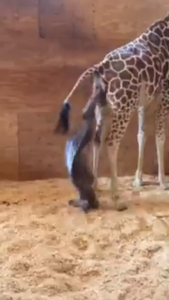
Look how far that baby giraffe dropped to the ground! WOW!
Wasn’t it completely fascinating how April the Giraffe gave birth while standing up…tall? It’s estimated that the newborn giraffe falls six feet to the ground because of how tall the mother stands off the ground. In perfect design, the fall enables the cord to sever and gives the new baby a little jolt to inspire breathing. For the sake of survival, in the wild, the newborn giraffe must be up and on its feet very quickly, so the fall to earth helps encourage the process along.
Using upright positions and following one’s body for pushing is one of the most passive things a laboring mother can do. We have a celestial gift in the form of the gravitational pull that makes it all the more important for mothers to use upright positioning during birth. Just like April The Giraffe, the human body knows exactly what to do and when to do it when it comes time for pushing, sometimes there’s just no stopping it. The body will take over, and the uterus will do its job! Using upright positions and working WITH the urges you feel will make the process more expedient, and less complicated. And, the squat gives you a significant amount of extra room for baby to pass through, so get upright and follow the bodies urges when the time comes!
One thing I absolutely love about watching animals give birth is that almost always, mama mammals and baby mammals are NOT separated. It just makes sense to keep moms and newborns of any kind together! In keeping with this form, the Animal Adventure Park stated many times before the birth that the mother and baby would be together until the time of weaning. This allows the young one to get nutrition and guidance from their mother.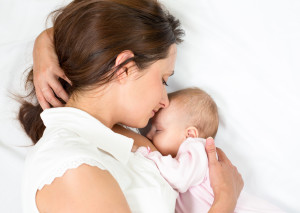
Several years ago, when birth moved from home to hospital, we introduced the idea of the newborn nursery after birth. The role of the nursery was to look after the newborn and to allow the mother to rest, and while well intentioned, research shows that keeping newborns with their mothers has many health benefits. I, myself remember that just 17 years ago after I held my little blanket wrapped burrito, he was taken to the newborn nursery for his bath and other newborn procedures and didn’t return back to me until FIVE HOURS LATER.
Skin to skin contact after birth has been proven over and over again to be optimal for healthy babies. Additionally, Kangaroo Care has also been proven to benefit sick babies in the NICU. There are many documented health benefits of keeping mom and baby close, and I’m thankful to say that many hospitals have changed their ways. My local hospital Tallahassee Memorial Healthcare has begun to pursue Baby-Friendly Status, and the quest for this designation has affected many newborn routines(*hand clap* for TMH). For instance, rather than giving newborns an immediate bath after birth, our hospital initiated a “Wait the first eight” policy, and after several successful months, that transformed into- wait until the next day! Something so small makes such a big difference for the health of the baby as well as the transition for both mother and baby!
All in all, watching birth is magnificent. And watching April The Giraffe birth was inspiring and majestic.
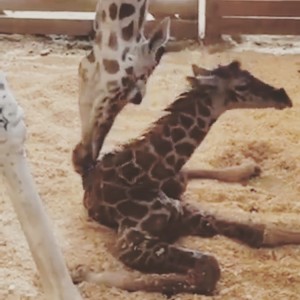 While I watched her intuitively follow her instincts and birth her new calf into the world, I was reminded of the normal, natural process that birth can be, and struck how the six healthy birth practices support a birth similar to Aprils. Prepared and supported but also with clinical care available as needed. A hands-off approach until something showed that it needed to be different- which thankfully, it never did.
While I watched her intuitively follow her instincts and birth her new calf into the world, I was reminded of the normal, natural process that birth can be, and struck how the six healthy birth practices support a birth similar to Aprils. Prepared and supported but also with clinical care available as needed. A hands-off approach until something showed that it needed to be different- which thankfully, it never did.
In birth, we sometimes say that the pendulum swings, and it seems that we as a society are swinging to more intuitive, hands off approach right now. I’m seeing practitioners take a slower stance, and offering more and more communication with patients about their care. It is encouraging. Medical management of complications of pregnancy can be life-saving and can be beneficial to mothers and babies, and it seems that we may be re-learning how to use the tools and the expertise we have at our fingertips, only when necessary.
Change takes time; and while organizations such as Lamaze International, DONA International, ACNM, AWHONN, and ACOG often advocate for change based on best evidence, data shows that it takes a bit longer for those changes to reach regular practice.
Communication between patients, families, and health Care providers, is key to working together for the most healthy, safe, births possible.
Always growing, ever learning, much loving,
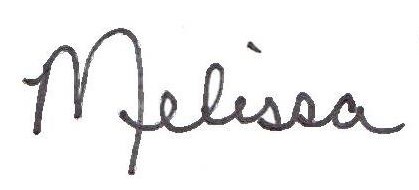
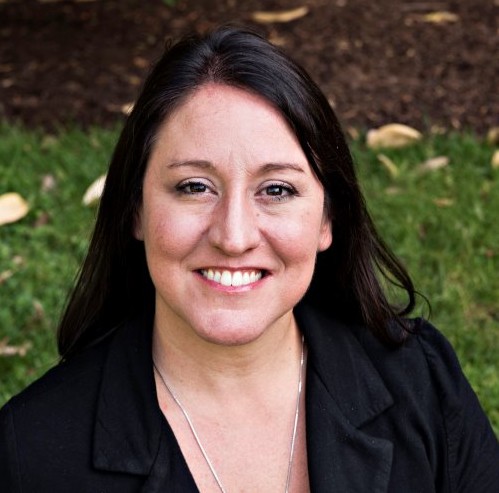
Melissa Harley, AdvCD/BDT(DONA), LCCE is an advanced certified birth doula, approved birth doula trainer, and certified childbirth educator. She is the owner of Capital City Doula Services (CCDS) and this blog. While working as a doula led her to the childbirth profession, mentoring families and professionals is one of her greatest joys. To contact Melissa, please visit our contact us page.
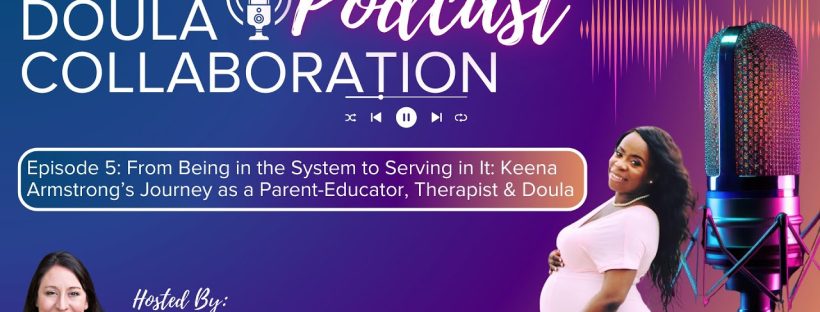

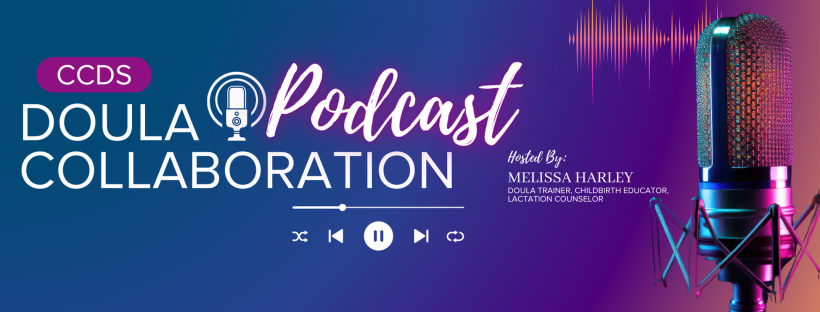
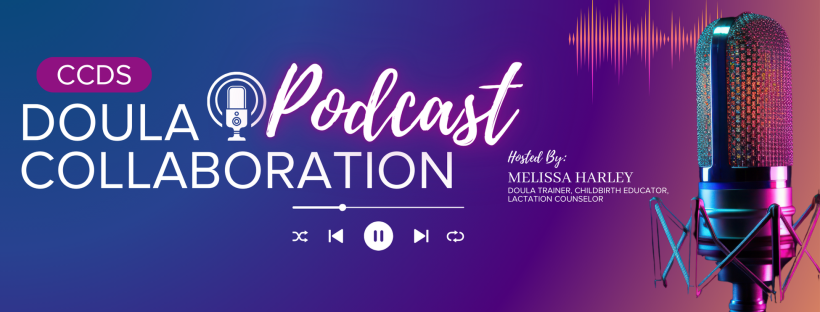
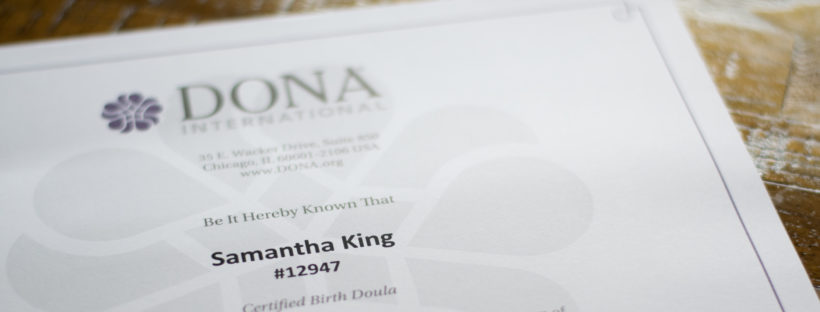
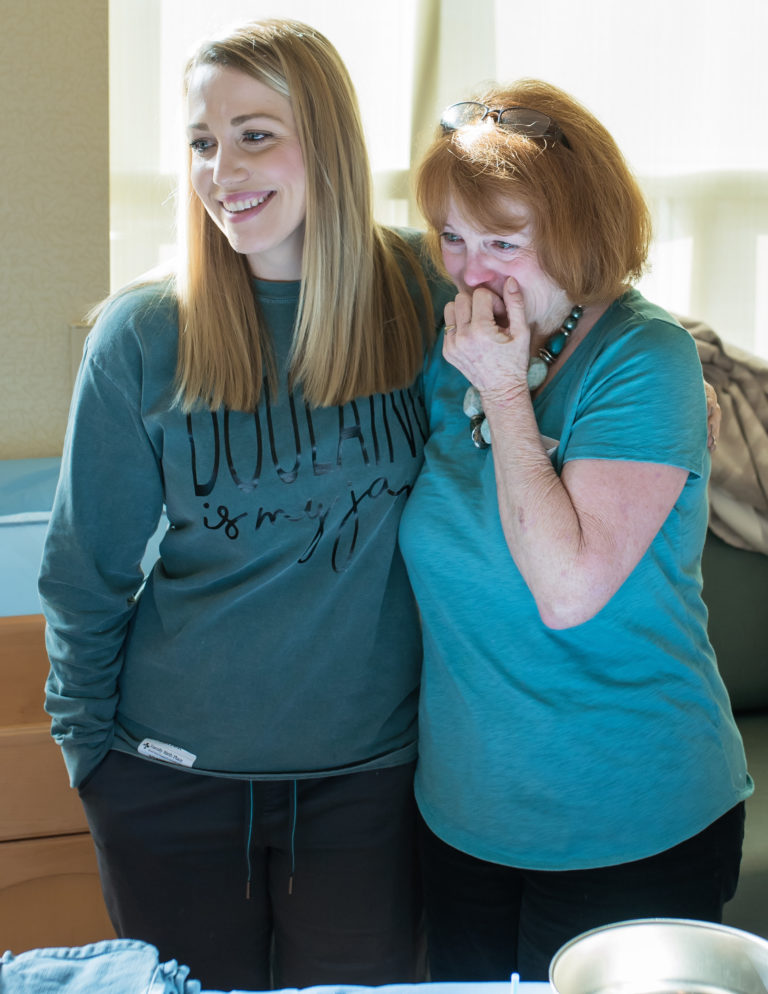
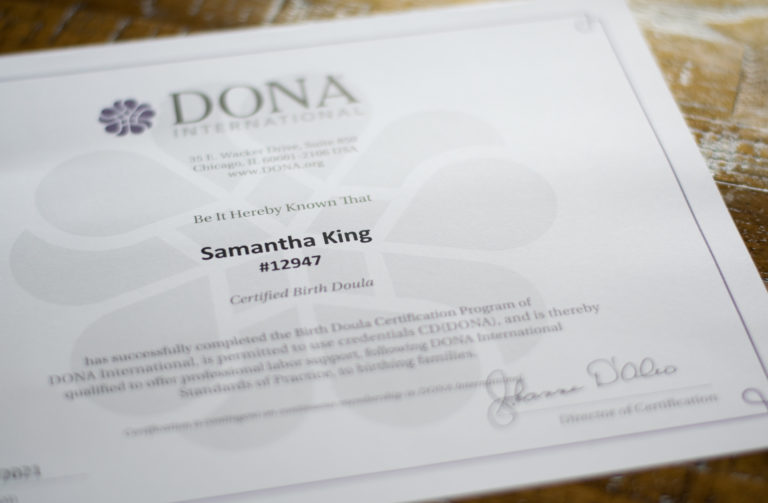

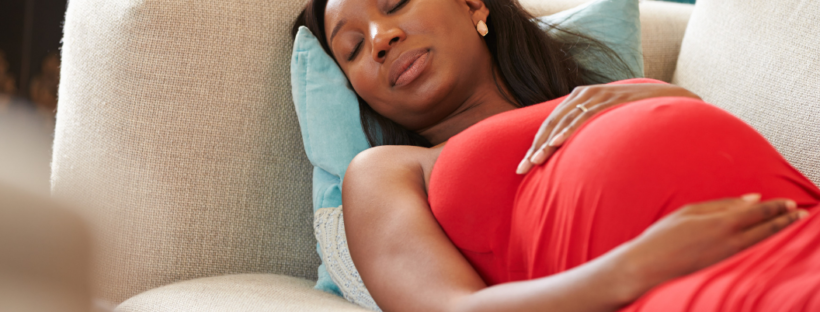
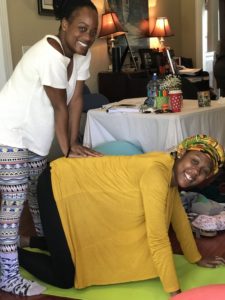

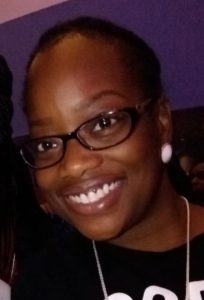
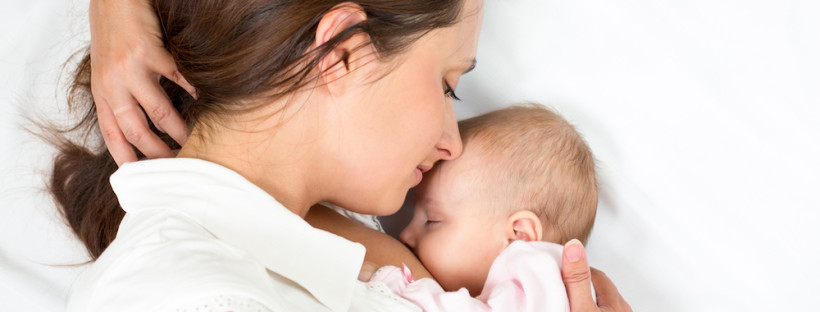
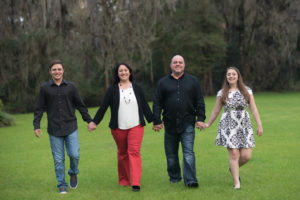 7030. Seven ZERO THREE ZERO.
7030. Seven ZERO THREE ZERO. 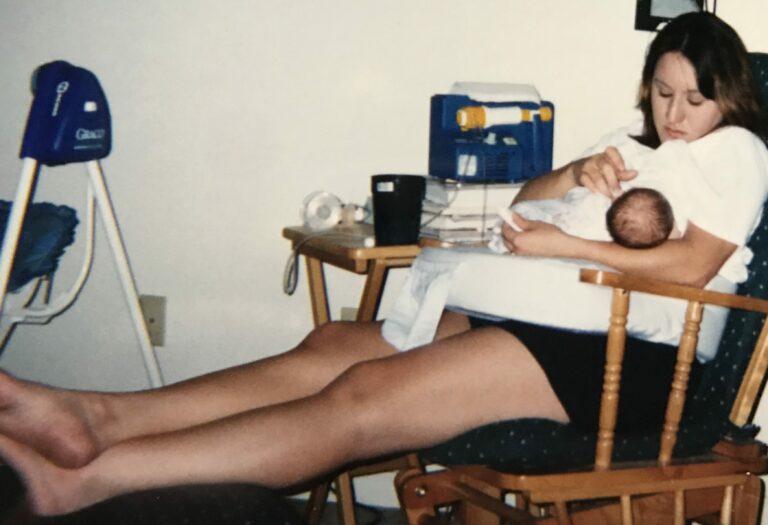
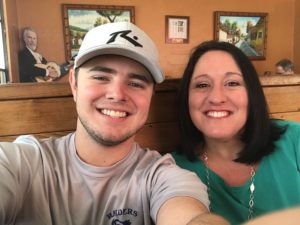

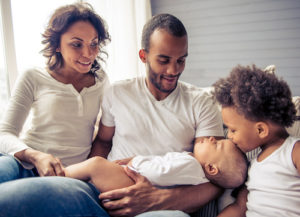
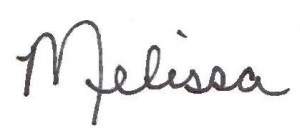
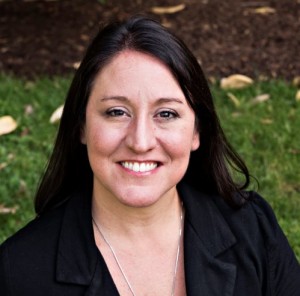
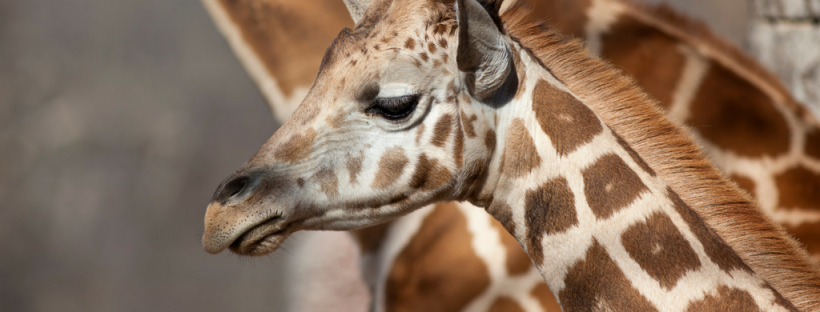


 doula trainings, you know that the cornerstone to much of what we teach about labor progression and comfort is movement and position changes for labor. I like to say, the more you move, the less you hurt, the quicker the baby comes out. The process of labor is so smart that the body intuitively signals the mother to move in ways that are beneficial to both labor progress and for pain management. It’s such an amazement to me that some moms often begin swaying side to side instinctually in pregnancy, and then in labor, and then continue to sway to soothe a newborn.
doula trainings, you know that the cornerstone to much of what we teach about labor progression and comfort is movement and position changes for labor. I like to say, the more you move, the less you hurt, the quicker the baby comes out. The process of labor is so smart that the body intuitively signals the mother to move in ways that are beneficial to both labor progress and for pain management. It’s such an amazement to me that some moms often begin swaying side to side instinctually in pregnancy, and then in labor, and then continue to sway to soothe a newborn.



 While I watched her intuitively follow her instincts and birth her new calf into the world, I was reminded of the normal, natural process that birth can be, and struck how the six healthy birth practices support a birth similar to Aprils. Prepared and supported but also with clinical care available as needed. A hands-off approach until something showed that it needed to be different- which thankfully, it never did.
While I watched her intuitively follow her instincts and birth her new calf into the world, I was reminded of the normal, natural process that birth can be, and struck how the six healthy birth practices support a birth similar to Aprils. Prepared and supported but also with clinical care available as needed. A hands-off approach until something showed that it needed to be different- which thankfully, it never did.
